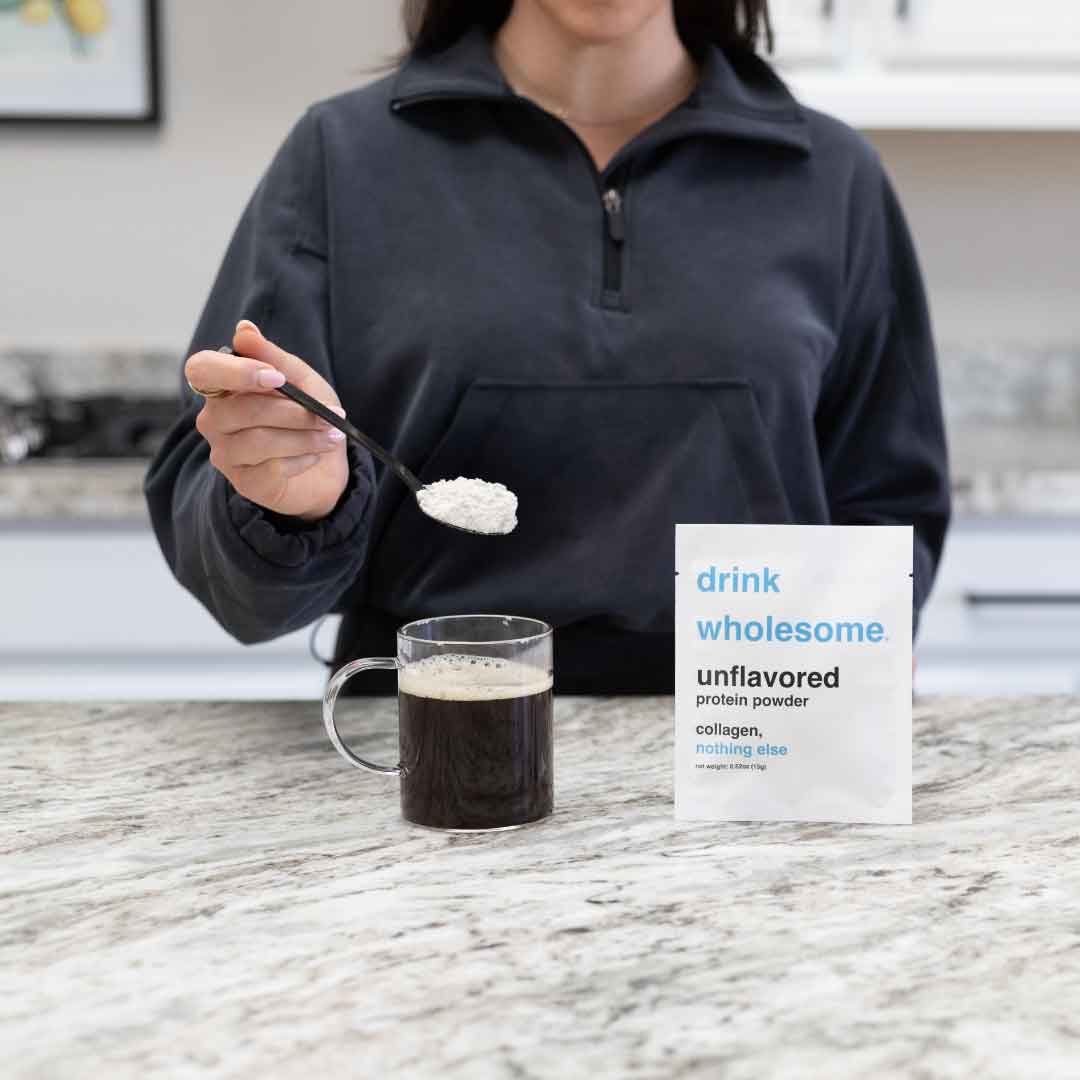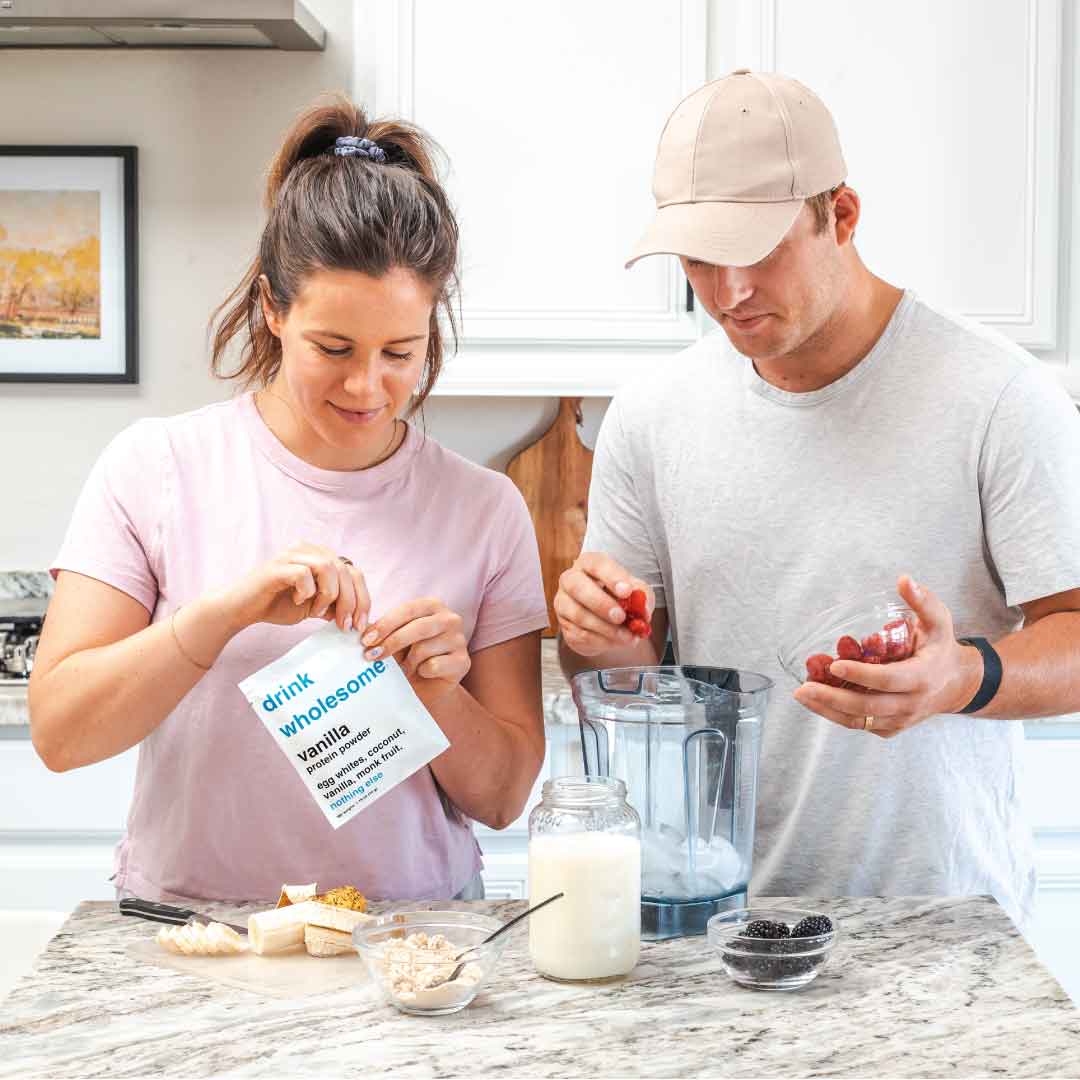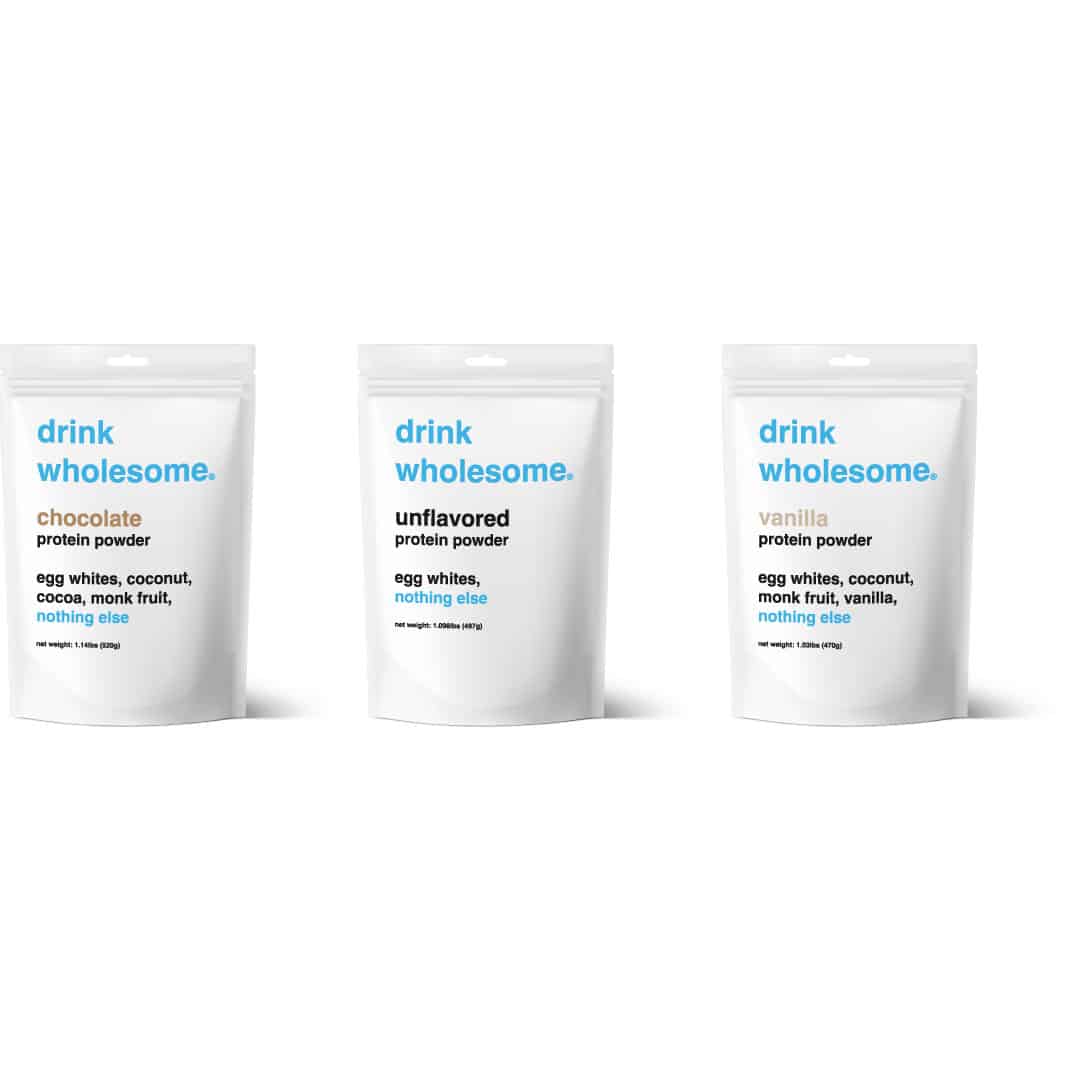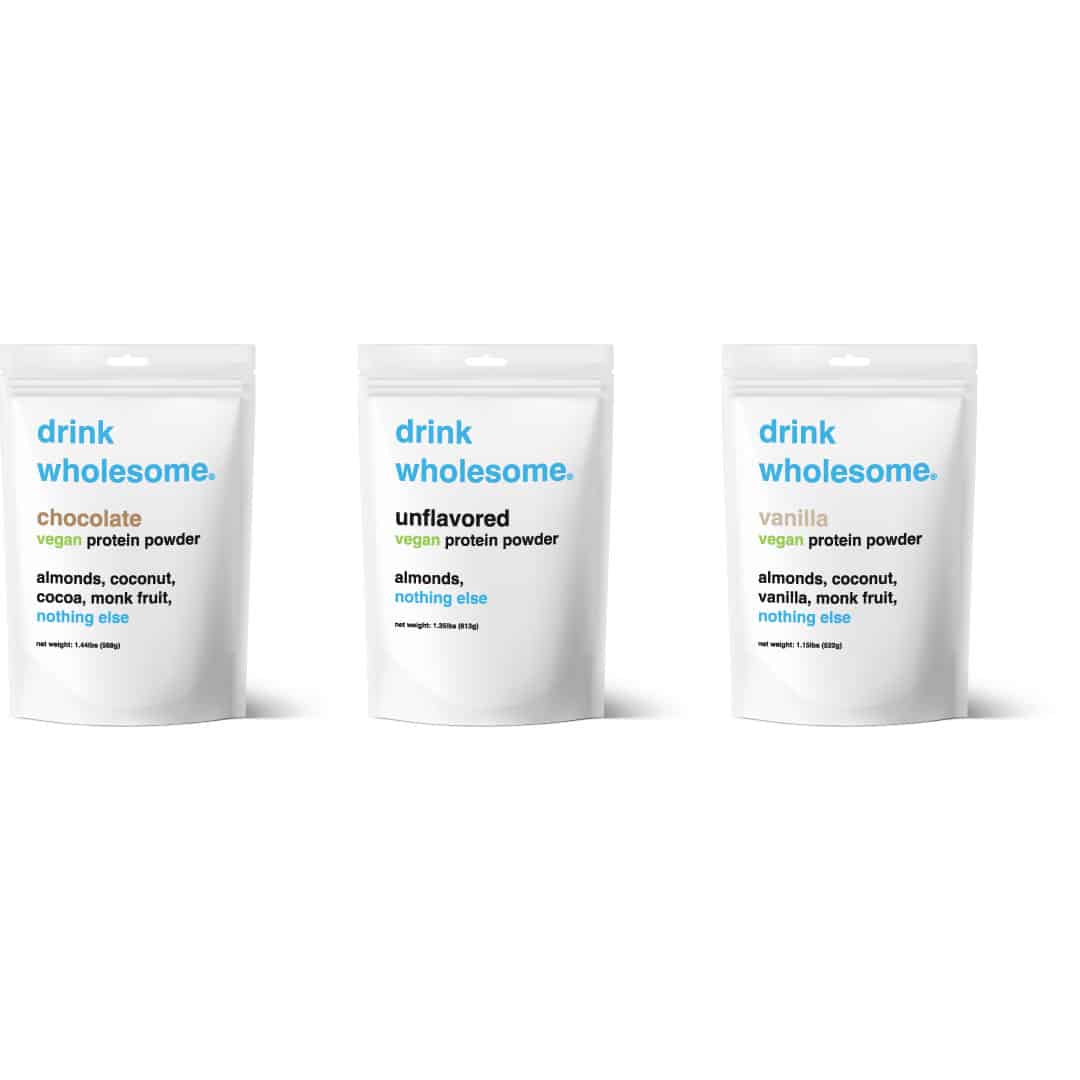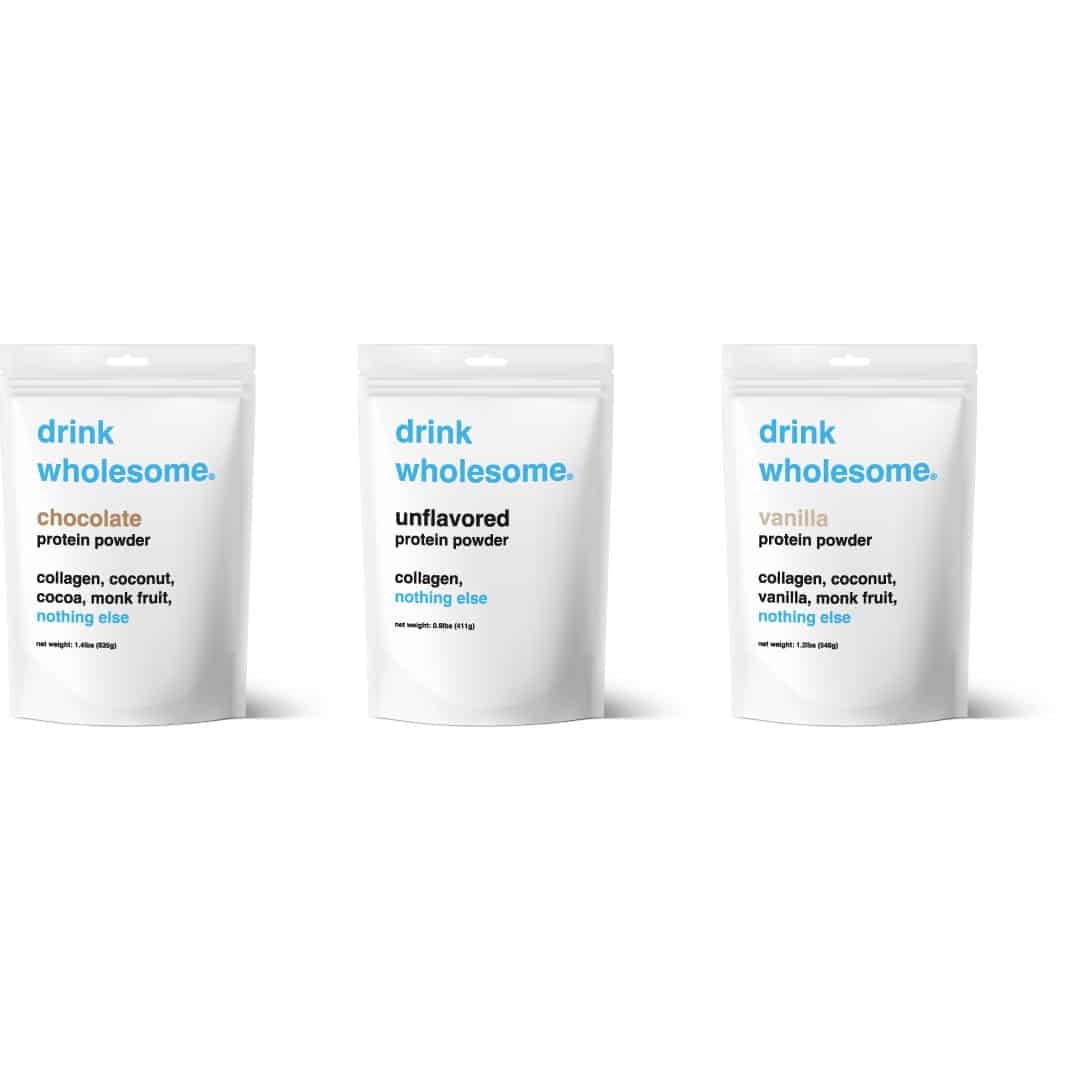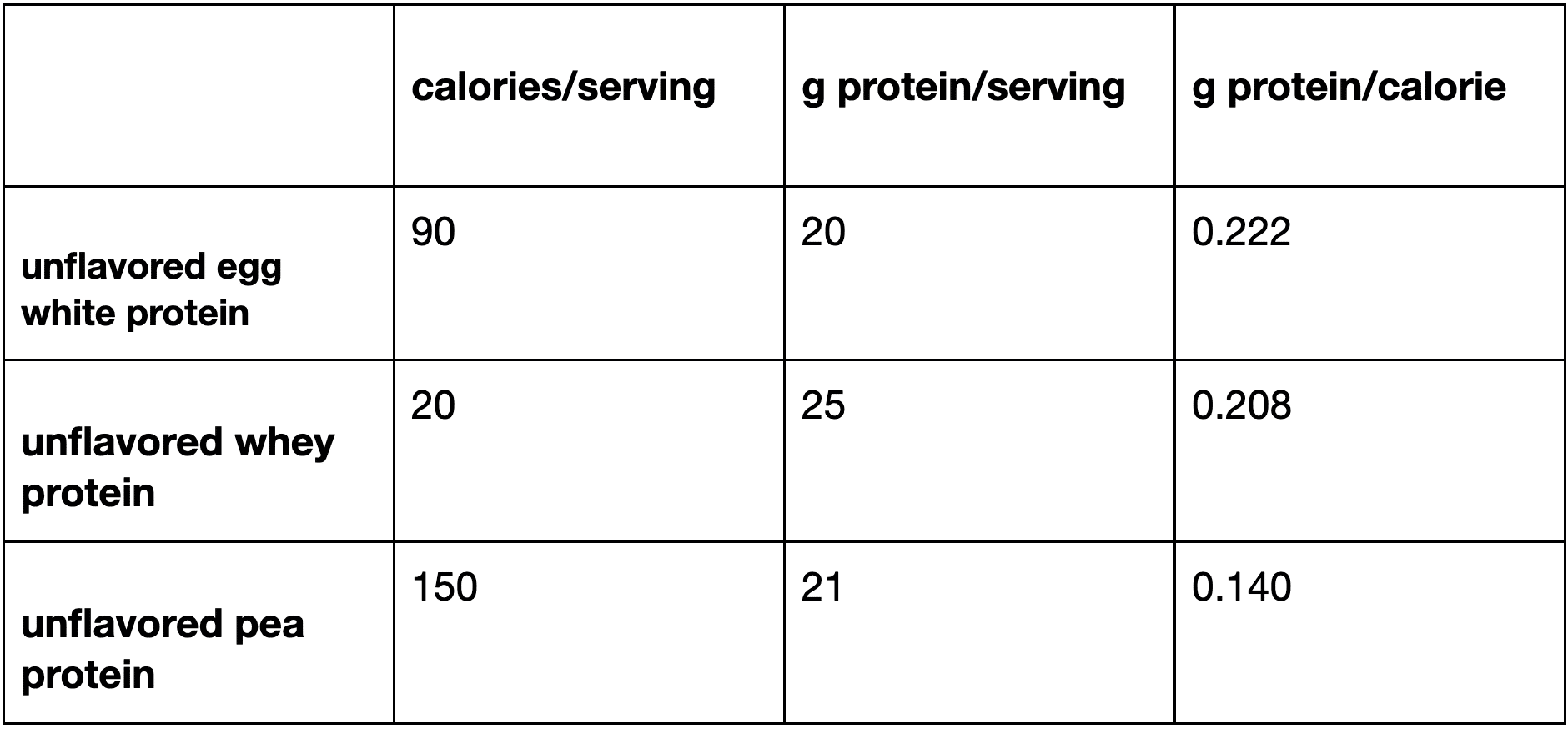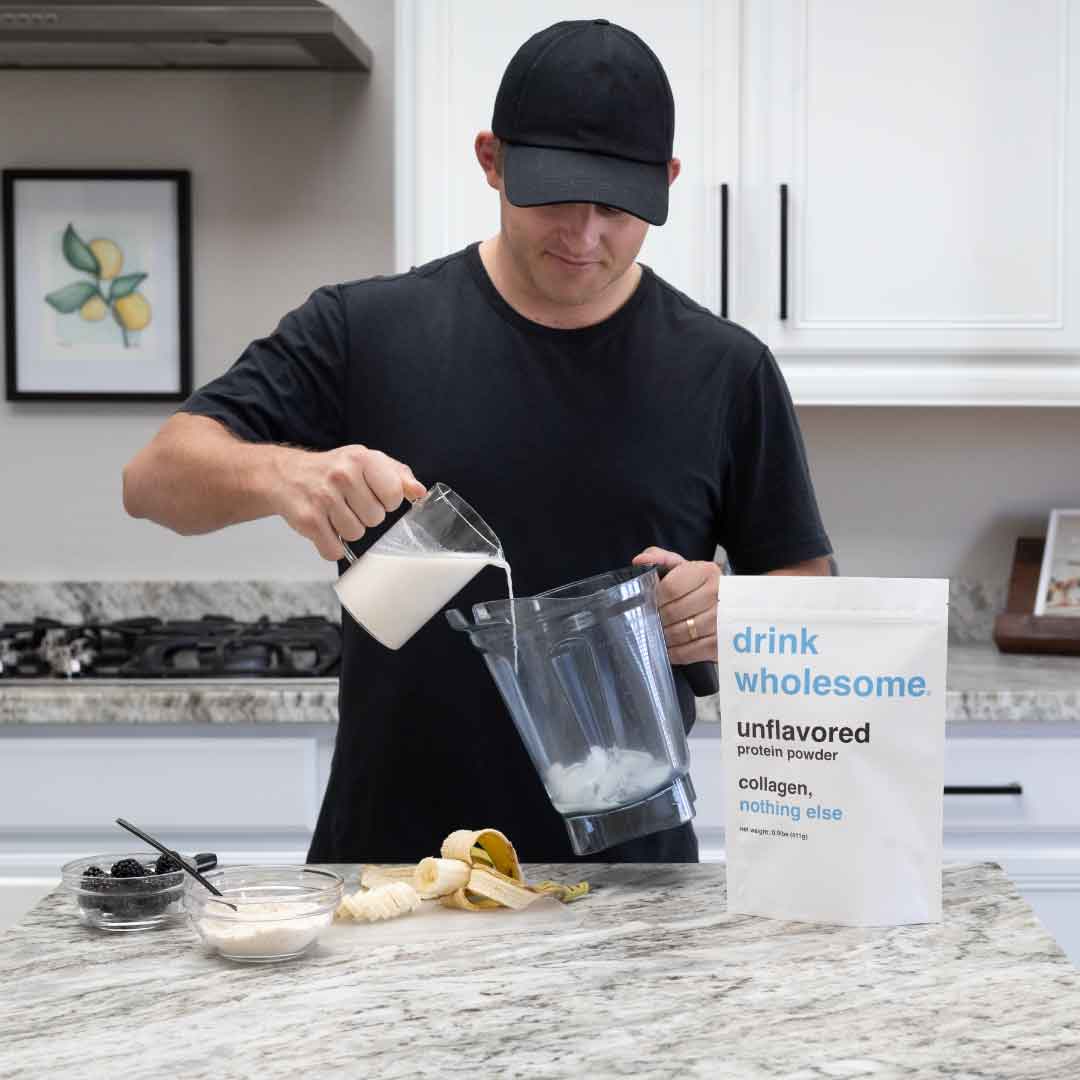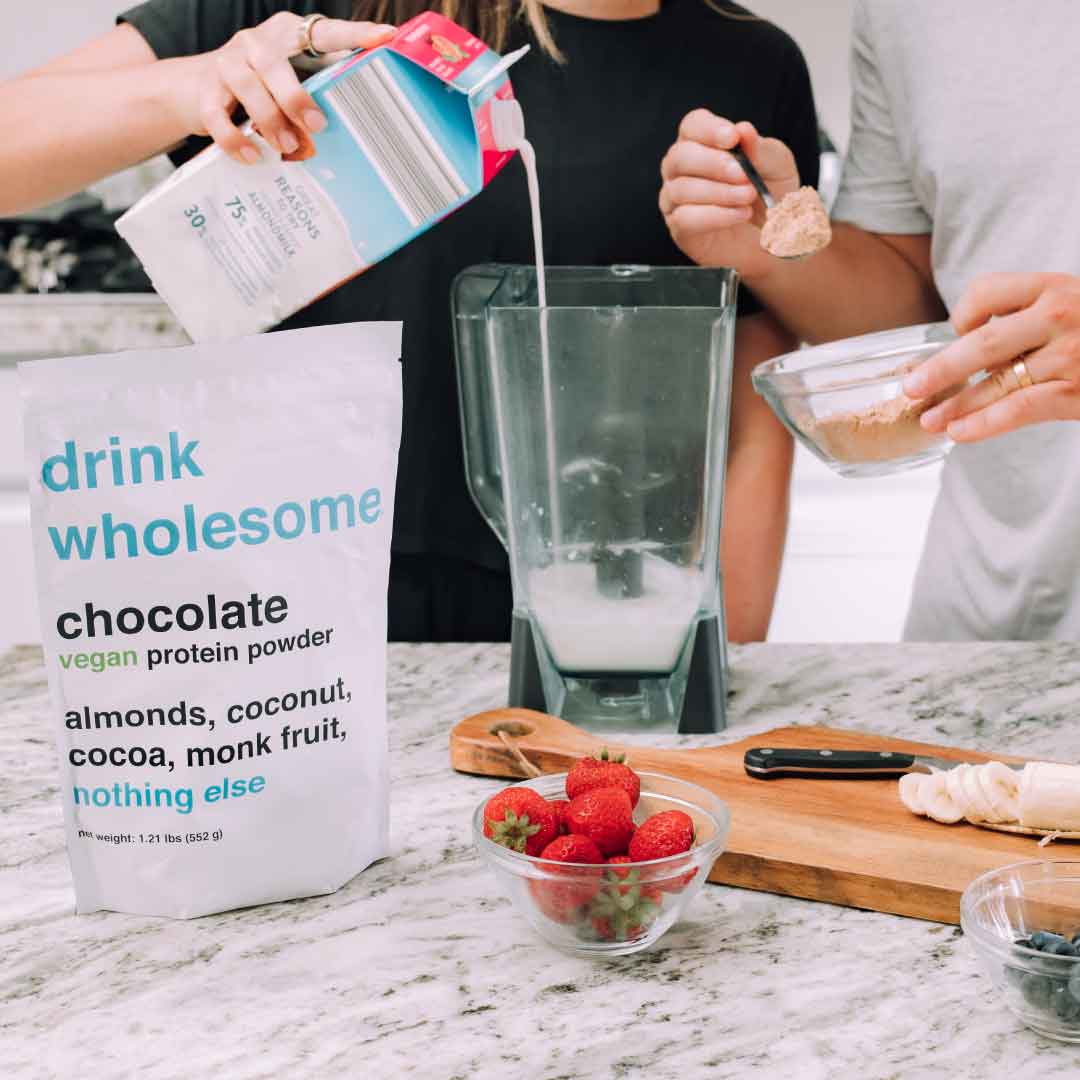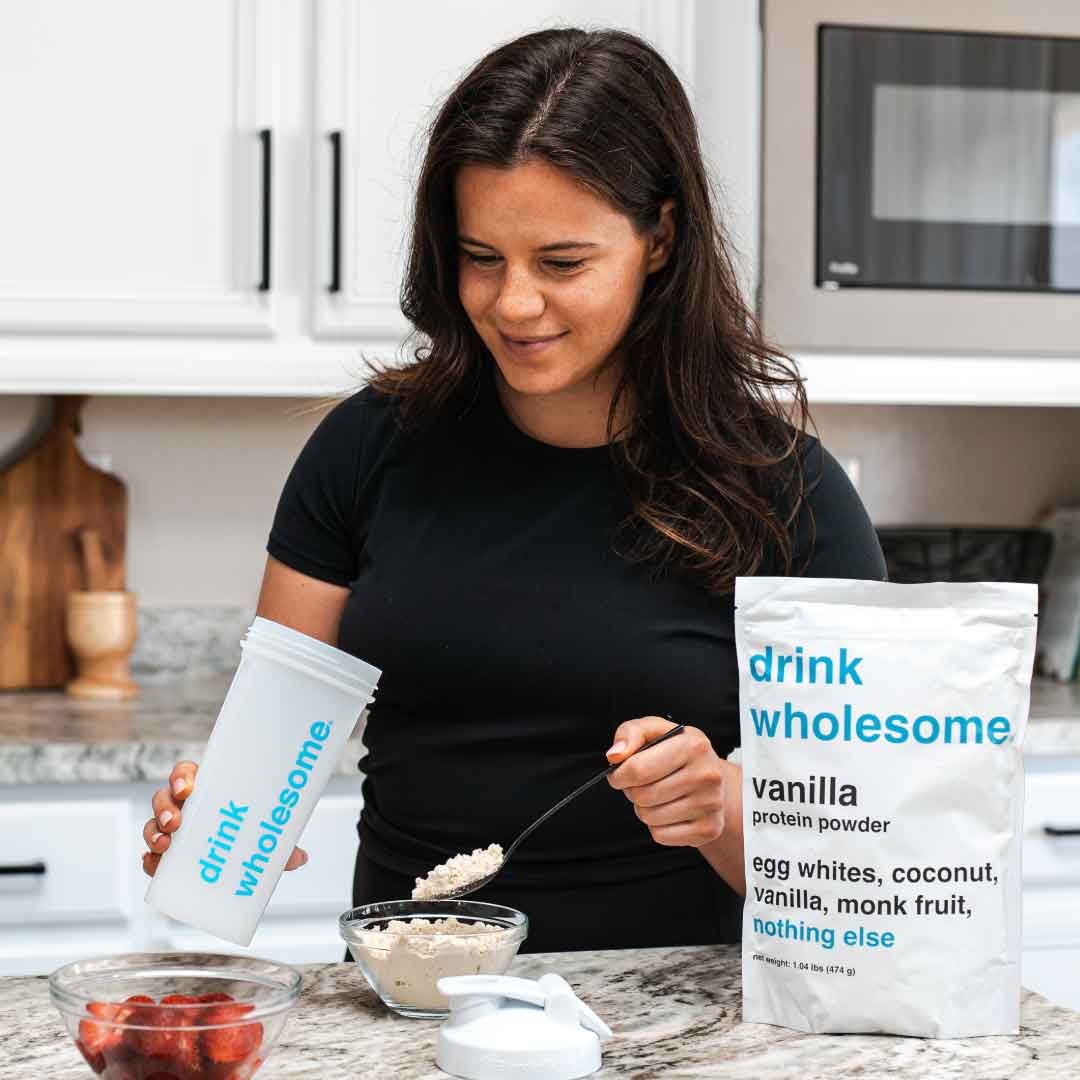What is the best low calorie protein powder?
If you are looking for the best low calorie protein powder, you have come to the right place. Learn how to choose a low calorie high protein powder that will help you easily and safely meet your protein needs. This article was written by Jack Schrupp.
How to choose a low calorie protein powder
What is a calorie?
A calorie is the unit of energy in food. Your body use calories to perform all physiological functions.
Some foods contain more calories per gram than others. A 1 kilogram watermelon, for instance, contains less than 400 calories, whereas 1 kilogram of Swiss cheese contains over than 4,000 calories. Understanding what calories are, and knowing how many are in the foods you eat, is an important part of eating a healthy diet and managing your body weight.
What does low calorie mean?
According to the U.S. Food and Drug Administration (FDA), in order to be labeled as low-calorie, a food must contain less than 40 calories per serving. Very few protein powders meet this criteria.
Dietary protein has about 4 calories per gram, which means that a protein powder with 20 grams of protein per serving must have about 80 calories per serving. In other words, this is the lowest possible number of calories possible for that amount of protein. Some protein powders have 4.4 or 4.3 calories per gram of protein, but only because they are made with protein isolates.
Protein isolates are foods stripped of everything but the protein. Although they make eating more protein easy, they have a number of drawbacks.
Firstly, protein isolates have a chalky aftertaste. If you find that adding protein powder makes your smoothie taste with sawdust, you know exactly what I am talking about.
Second, protein isolates have been mechanically and/or chemically stripped of everything but the protein, including the enzymes, fiber, and other natural digestive aids that help you break them down. This not only makes them hard to digest, but may also affect your gut health.
So, when picking a low calorie protein powder, keep in mind fewer calories is not always better. Sometimes, more calories means less processing, which is a good thing.
Why use low calorie protein powder?
Many people looking for a low calorie protein powder are on a low calorie diet, which is an eating plan designed to help people lose weight. A low calorie protein powder can help with weight loss because it contains a lot of protein per calorie.
Increasing the percentage of your calories that come from protein will help you lose weight because protein is the most satiating (filling) macronutrient. It keeps you feeling full for longer than fats and carbs, which can help prevent cravings and overeating. This, in turn, allows you to eat fewer calories.
You may not have known that you have to burn 3,500 more calories than you eat to lose a pound of body weight. To lose weight at a safe rate (0.5 pound per week) you need to create a daily calorie deficit of 250 calories. This is where replacing a meal, or part of a meal, with a low calorie protein shake can help.
That said, most protein powders are made with ingredients that can cause painful side effects and long term health problems. Among these ingredients are food additives, dairy-based proteins, and protein concentrates and isolates.
Avoid food additives
Low calorie protein powders tend to be full of food additives like emulsifiers, thickeners, sugar substitutes, and flavorings, which can not only upset your stomach (more about this later), but also alter the composition and function of your gut microbiome – the collection of microorganisms living in your gut. This can lead to gut dysbiosis, or an imbalance in your gut microbiota. Gut dysbiosis is a leading driver of inflammation and contributes to wide range of chronic diseases, including inflammatory bowel disease (IBD), obesity, type 1 diabetes, and colorectal cancer.
Avoid dairy-based proteins
Dairy-based proteins like whey and casein, although not an issue for everyone, can cause side effects like bloating and diarrhea. This is in part because they contain lactose, a sugar most people cannot fully digest. It is also likely related to the amount of processing required to make them. Continue reading to learn more.
Avoid protein concentrates and isolates
Most protein powders, including all whey and pea protein powders, are made from protein concentrates and isolates. Basically, protein sources like whey and peas do not contain enough protein by weight to be used as a protein supplement, and must have their non-protein components removed. As you just learned, this strips away the enzymes, fiber, and other natural digestive aids that help you break them down.
This is all to say that although low calorie protein powder can be a helpful addition to a your diet, it is important to choose wisely. Many protein powders can do more harm than good, especially if they are consumed regularly.
drink wholesome is the best low calorie protein powder
If you are looking for a low calorie protein boost, you have come to the right place. We make a number of low calorie protein powders, including both flavored and unflavored options. Our lowest calorie protein powder is our unflavored collagen protein powder, which has 15 grams of protein and only 50 calories per serving. We also make an unflavored egg white protein powder, which has fewer calories and more protein per calorie than both whey and pea protein.
You can add our unflavored protein powders to smoothies, oatmeal, and your favorite recipes for an easy, low calorie protein boost. If you prefer to mix your protein powder with just milk or water, try our vanilla collagen protein powder; it has only 80 calories per serving. Continue reading to learn more about what makes drink wholesome the best low calorie protein powder.
One of the reasons why we make the best low calorie protein powder is that we do not use any food additives whatsoever.
my ingredients:
egg whites, coconut, cocoa, monk fruit
the alternative:
Protein Matrix Comprised of (Whey Protein Concentrate, Whey Protein Isolate, Calcium Caseinate, Micellar Casein, Milk Protein Isolate, Egg Albumen, Glutamine Peptides), Polydextrose, Sunflower Creamer (Sunflower Oil, Corn Syrup Solids, Sodium Caseinate, Mono- and Diglycerides, Dipotassium Phosphate, Tricalcium Phosphate, Soy Lecithin, Tocopherols), Natural and Artificial Flavor, MCT Powder (Medium Chain Triglycerides, Nonfat Dry Milk, Disodium Phosphate, Silicon Dioxide), Lecithin, Cellulose Gum, Salt, Yellow 5, Sucralose, Acesulfame Potassium, Papain, Bromelain
Food additives are hard to digest and feed gut bacteria, which release gas as they eat. As you might imagine, too much intestinal gas can cause bloating, flatulence, and stomach pain.
Partially digested food additives also cause your colon to absorb too much water, which can lead to diarrhea. Here is a list of the most common food additives in protein powder:
acacia fiber, acacia gum, acesulfame potassium, artificial flavors, ascorbic acid, aspartame, calcium carbonate, carrageenan, cellulose gum, dextrin, dicalcium phosphate, dipotassium phosphate, erythritol, gellan gum, guar gum, gum arabic, inulin, locust bean gum, maltodextrin, mono- and diglycerides, ‘natural’ flavors, rice bran extract, rice dextrin, rice hulls, rosemary extract, silica, silicon dioxide, sodium alginate, sodium bicarbonate, soluble corn fiber, soy lecithin, sucralose, sunflower lecithin, tocopherols, tricalcium phosphate, xanthan gum, xylitol, zinc oxide
Another reason why we make the best protein powder with low calories is that I do not use dairy-based proteins like whey and casein. Whey and casein, which are byproducts of cheese and yogurt production, resist digestion and tend to cause digestive issues.
A final reason why we make the best low calorie high protein powder is that I do not use protein concentrates or isolates. Nearly all other protein powders are made from one or both of these protein sources, which look nothing like real food.
Instead of using protein concentrates or isolates, we make the best high protein low calorie protein powder with whole foods like collagen, egg whites, and almonds. Protein sources like these are easy to digest and absorb. They also each bring a unique set of digestive benefits to the table.
Collagen can reduce bloating and improve digestive symptoms. Almonds are rich in prebiotic fiber and improve the composition of your gut microbiome. Egg whites are alkaline, meaning they balance the pH levels in your gut, and promote the growth of good gut bacteria.
Our customers experience fewer digestive issues with our protein powders than with any other type of protein supplement. Order samples to see for yourself.
★★★★★
simple and delicious
“I love your egg white protein. As a person who enjoys being active, running, hiking, gym time and someone who suffers from IBD I highly recommend egg white protein.” – Pedro
This content is not intended to be a substitute for professional medical advice, diagnosis, or treatment. drink wholesome is not intended to diagnose, treat, cure or prevent any disease.


